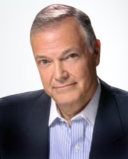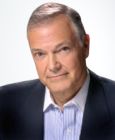Career
How to Make Plans in a Time of Uncertainty
The pandemic has forced us all to challenge what we know about our future.
Posted January 28, 2022 Reviewed by Ekua Hagan
Key points
- Past choices and present circumstances both affect one's view of what the future holds.
- People no longer have the luxury of predictability, particularly in the short-term.
- Certain truths remain constant, even now; these can be anchors in a sea of uncertainty.
- No one, not even the experts, has a clear sense of what the future holds.
In psychoanalytic thinking, how we hold on to the stories of our past informs our understanding of the present. Logicians call it heuristics, mathematicians call it Bayesian inference — but however one chooses to frame it, we all have a “future structure” embedded in our minds. Our past experiences set the scaffolding for our imagined future: what our relationships, our career goals, and our long-term lives will look like.
When meeting a potential life partner, we imagine what a life with them will look like. When making a bid in a card game, we have a prediction about our opponents’ cards and the consequences of how that game will play out. The more we know about our partner (or our poker opponent), the better informed we will be about their future behavior.
Our past factors into how we think about our future through a system of reasoning I call the “if-and-when”: What will I do if (and when) I get that promotion? What if she says she loves me? (Or, conversely: What if she says I’m not the one? What if the promotion goes to my rival?)
These stereotypical situations illustrate how we carry various visions of our futures, based in part on what we have come to expect from our previous experiences. This concept applies in the short term — what will happen if the package arrives tomorrow? — as well in our distant futures involving marriage, children, retirement, and old age.
Every time we experience an “if-and-when” moment, it improves our predictive abilities about future uncertainties.
But what should we do about our futures while living in this time of uncertainty?
If “the future” is a mental scaffold that guides our choices, the pandemic compromised the reliability of that structure almost overnight. Our vision of the future is built upon the memories of our past and our situation in the present, filtered through our character traits and personality. (An optimist might view their future as brighter than a pessimist's, even though their circumstances may be identical.)
Since March of 2020, COVID has dominated the news, blanketing us with perpetual worry. We treat this state of uncertainty with a mixture of our adaptive strategies (or “coping mechanisms” or “defenses”), based on our personalities, our past experiences, and the nebulous swirl of conflicting advice from outside. Will it ever be possible to make reliable plans again?
The answer is: It all depends!
Some things are still as predictable as they ever were. We will all age as the years go by; we have to plan for our education, our careers, and our children’s and parents’ futures. Large-scale decisions will need continuity with plans that, while taking COVID into account, extend beyond the virus’ short-term consequences.
Epidemiologists predict that COVID will gradually diminish into something like the annual flu or common cold season: always with us, but much less consequential. That is assuming we get vaccinated, and take the kind of precautions that will undoubtedly remain with us for some time. Perhaps thinking of future COVID as the flu is a helpful reframe: We might not dread getting the flu, but it still behooves us to get a flu shot. One hopes that the political polarization about simple public health measures will also subside.
But what about our short-term future? What about seeing that show, planning a vacation or wedding celebration this summer? Will classes be in-person for our children next month? In matters of the short term: We just can’t be sure.
But think of questions with a longer time frame: What career do I want to pursue? Should I rent an office for my business? Where should I live? Where do I want to be in 20 years? While those questions may be harder to answer than they were pre-pandemic, we now have to look inward and answer those questions in a more conscious way. We have to weigh our own picture of our future with varying “expert” opinions — knowing that experts are just people who, like us, are living through the most uncertain time in their personal and professional lives.
Most of us are now living with more uncertainty than we ever have. As in times of war, it feels as though all we can do is wait and see. For many of these things, the answers are going to remain uncertain.


